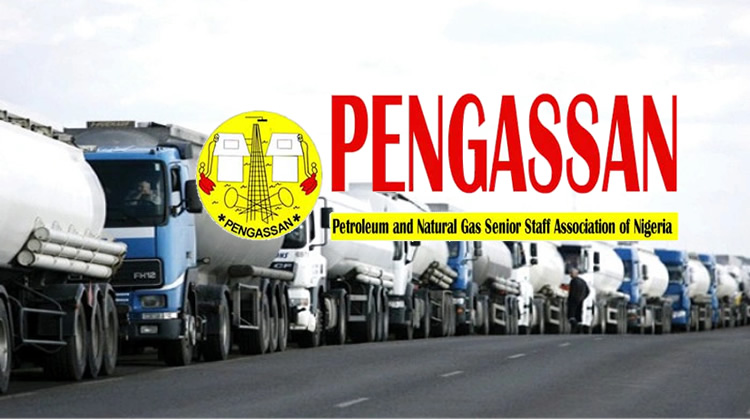The Petroleum and Natural Gas Senior Staff Association of Nigeria (PENGASSAN) has condemned oil companies that subject workers to hazardous practices, including using human labour instead of cranes for offshore operations.
The issue came to light during yesterday’s 2025 PENGASSAN Energy and Labour Summit in Abuja, where both the minister of labour and employment, Muhammad Maigari Dingyadi, and the minister of state for petroleum resources (oil), Heineken Lokpobiri, expressed shock at a recent video showing workers being used in place of cranes to lift heavy equipment.
Speaking at the event, PENGASSAN president, Comrade Festus Osifo described the incident as an aberration and warned that such negligence puts workers’ lives at serious risk.
Pointing to the video, he said, “If you see this boat coming close to the platform, we have human beings doing the job of a crane. Just imagine—this is happening in some of the oil and gas installations we have in Nigeria. This is truly an aberration. Yes it’s an isolated case, but imagine the cost to human lives.”
The labour leader also highlighted the summit’s theme, “Building a Resilient Oil and Gas Sector in Nigeria: Advancing HSE, ESG, Investment and Incremental Production,” insisting that environmental, social, and governance (ESG) compliance was no longer optional but a lifeline for the sector’s survival.
In his speech, Minister of Labour and Employment Muhammad Maigari Dingyadi lauded PENGASSAN for promoting workplace stability and welfare.
He said the federal government was committed to ensuring occupational safety in the energy sector and strengthening collaboration with labour unions.
The labour minister emphasised that resilience in the oil and gas sector must go beyond infrastructure and investment to prioritise people, adding that “health and safety are non-negotiable pillars of any resilient energy system.”
On his part, the minister of state for petroleum (oil), Heineken Lokpobiri, expressed shock after viewing the video presented by PENGASSAN.
He described using human beings to replace cranes as unacceptable and vowed to identify and engage the company involved, saying the incident reinforced the need for stronger adherence to global health, safety and environmental standards in Nigeria’s oil and gas sector.
“I was shocked to see the video. I can’t imagine why human beings have to do the work made for cranes, and that is why today’s theme is very important.”
“After today, I will engage with the president to know the particular company that was found culpable of deploying human beings to do what a crane should do”, Lokpobiri vowed.
Policy Inconsistency Threatens Investment In Oil And Gas Sector – PENGASSAN
The Petroleum and Natural Gas Senior Staff Association of Nigeria (PENGASSAN) has warned that persistent policy inconsistency in the nation’s oil and gas industry threatens investment, discouraging long-term planning and creating uncertainty for operators.
Speaking at the opening of the Petroleum and Natural Gas Senior Staff Association of Nigeria Energy and Labour Summit (PEALS 2025) in Abuja yesterday, PENGASSAN president, Comrade Festus Osifo, said recent changes to the Petroleum Industry Act (PIA) have created anxiety among investors and could distort the stability required for growth in the sector.
Osifo noted that while President Bola Tinubu’s administration had taken commendable steps through executive orders to boost incremental production and incentivise investment, subsequent amendments to the PIA have undermined investor confidence.
“Beyond the executive orders, the recent amendment to PIA by removing the fiscal section and transferring it to the Nigeria Tax Administration Act has created some anxiety in the industry.
As if this is not enough, there are plans further to distort the Act by a series of proposed amendments. Amendments to laws are inevitable, but not done haphazardly and intermittently, even before those the laws are intended to serve understand what it contains,” Osifo said.
The PENGASSAN leader cautioned that frequent changes to regulatory frameworks disincentive investors and hamper Nigeria’s ability to compete globally.
“Mr. President, honourable ministers, regulators, heads of government parastatals, and investors need certainty for medium to long-term planning. Policy somersaults and frequent changes to laws don’t aid stability. At best, it’s a disincentive to investment,” he said.
Osifo also raised concerns about unsafe practices in oil installations, citing cases where human beings were used in place of cranes to lift heavy materials at offshore platforms. He described such practices as an aberration that endangered lives and urged operators to prioritise workers’ safety.
On environmental issues, Osifo emphasised the global shift toward Environmental, Social and Governance (ESG) standards, warning that failure to comply could limit Nigeria’s access to international funding.
“Financial institutions now expect oil and gas companies to prove their ESG commitment, with transparent reporting alongside financial statements.
The long-term survival of our industry depends on how much we protect the environment, embed sustainability, and uphold strong corporate governance,” he noted.
The summit, themed “Building a Resilient Oil and Gas Sector in Nigeria: Advancing HSE, ESG, Investment and Incremental Production”, brought together government officials, regulators, industry leaders and union members to deliberate on issues affecting the sector.





